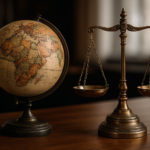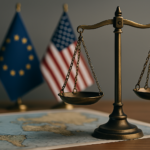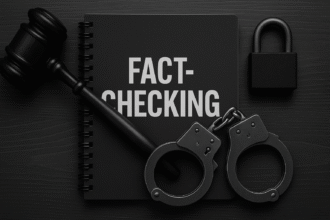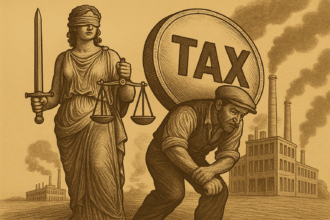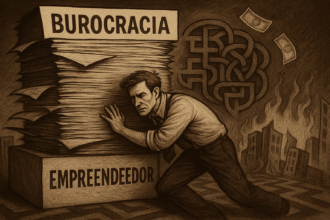Much of the debate on international trade is still based on a false premise: that nations negotiate with each other as if they were conscious entities with their own will. People talk about “national interest,” “trade balance,” and “negotiations between countries” as if it were legitimate for a government to decide what its citizens can or cannot buy, sell, or exchange.
But for libertarian thought — and for most consistent classical liberals — this narrative is not just wrong, but dangerous. Because it legitimizes the idea that trade is a matter of State, when it should be a matter of free individuals interacting voluntarily.
People change, governments get in the way
Trade arises from the natural impulse of specialization and cooperation. As he said, Ludwig von Mises, “the market is a social process.” It is not countries that do business — it is people, companies, families, consumers and producers.
By transforming trade into a state function, the government assumes the role of forced intermediary: it creates tariffs, demands licenses, imposes prohibitions, distributes subsidies. And in doing so it destroys the very thing it should protect — the freedom to undertake and exchange.
Political boundaries do not define economic freedom
Why should a Brazilian depend on government authorization to buy a book from England? Or an Argentine farmer to sell coffee to Japan? Free trade, to be truly free, cannot stop at the border. The sovereignty of the individual must prevail over that of the State.
As I pointed out Murray Rothbard, “there is no such thing as the 'national interest' — there are only individual interests, which must be protected from the coercive power of the state.”
Commerce is peace. State is coercion.
The essence of voluntary trade is the peaceful exchange of value. The essence of the state is the imposition of rules under threat of punishment. By placing trade under state control, what we do is transform a naturally cooperative dynamic into a power relationship.
And that is why the current discourse on “regulating international trade” should be viewed with suspicion. What is at stake It's not just economic efficiency—it's the right of people to interact freely with the world.
Conclusion
Free trade is not a privilege granted by government agreements — it is a natural right of individuals. And defending it is more than a policy: it is a principle.

